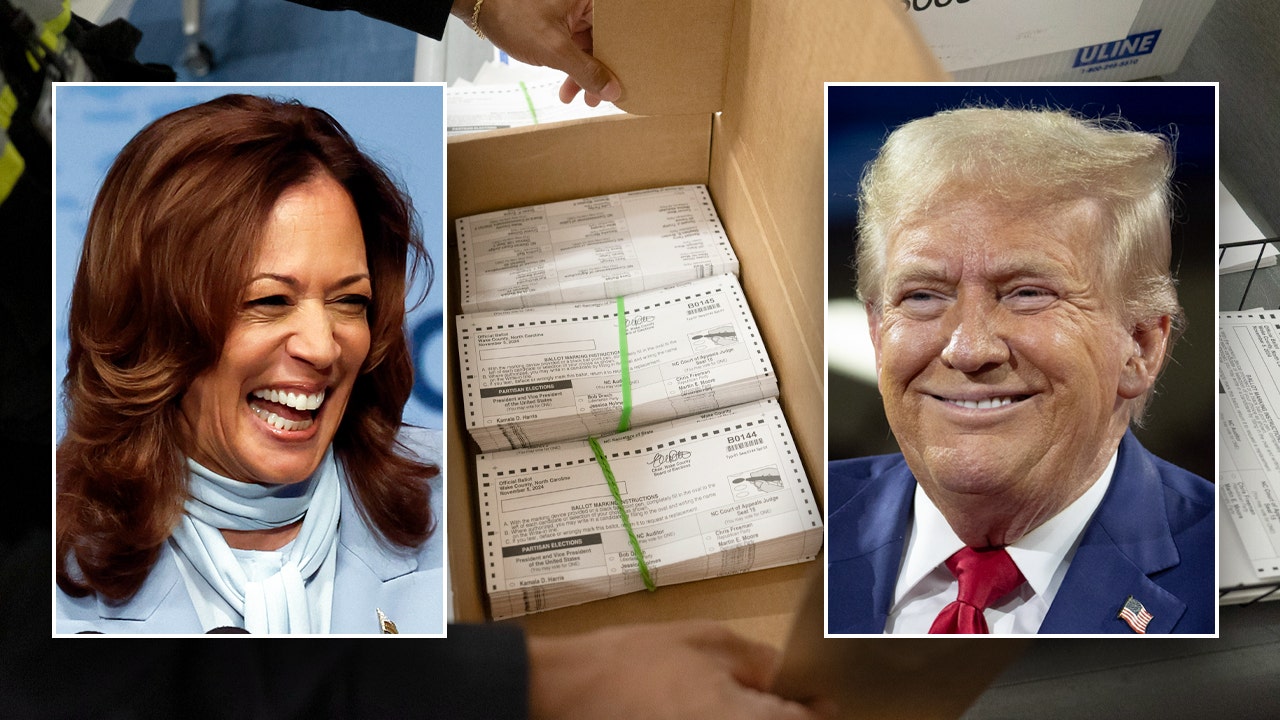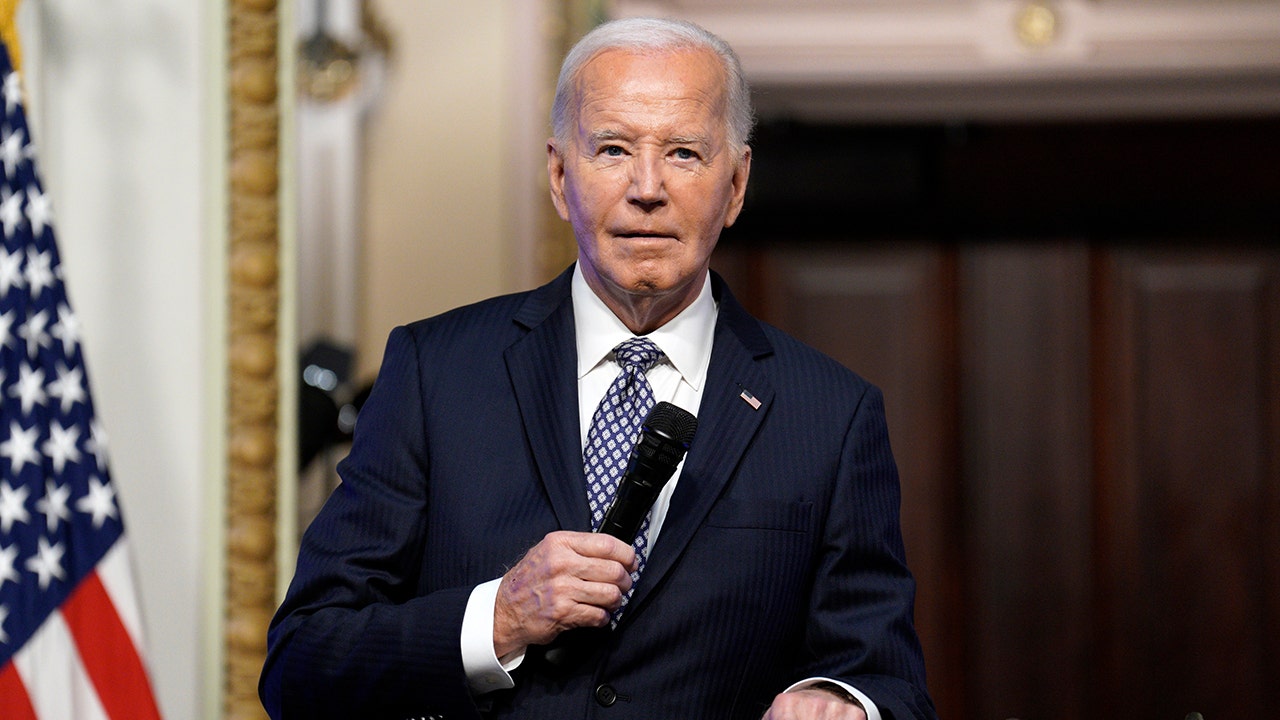Twenty-four states signed onto a formal “comment letter” to the Environmental Protection Agency (EPA), asking it to deny California a waiver that would allow Sacramento to compel visiting truckers to conform to its stringent emissions standards.
Any trucking company with 50 or more vehicles or $50 million in gross annual revenue would fall under the provisions that compel them to begin replacing their fleets with electric rigs in 2025.
The rules will apply to California trucks and those with out-of-state tags that operate in the Golden State for at least one day per year while meeting the above attributes.
West Virginia Attorney General Patrick Morrisey said in a statement the move would unfairly give California “a slice of sovereign authority” over other states and highlighted how Mountaineers rely heavily on big rig commerce in their rugged, landlocked state.
A sign welcomes travelers on I-79 to West Virginia from Pennsylvania in Monongalia County, W.Va., July 2024. (Charlie Creitz)
Nearly 85% of Mountaineer communities rely on trucks to deliver their goods, and the state has spent millions to expand its Robert C. Byrd Appalachian Highway System by creating wide, multi-lane trucking routes that carve through topography otherwise steep, windy and unsafe for tractor-trailers.
More than 65,000 tons of goods are trucked through West Virginia daily, according to Morrisey, the state’s GOP nominee for governor.
The petitioners alleged that California’s stringent restrictions on access to its state and ports will place an undue burden on commerce.
Nebraska Attorney General Mike Hilgers, who is leading the effort, said California lacks the legal authority to export its electric truck mandate nationwide.
“Our comment calls on the Biden-Harris administration to favor the rule of law over its radical climate agenda and block California’s ban on internal-combustion trucks. Electric trucks are inefficient and costly and will harm Nebraskans by increasing the costs of interstate transportation, raising prices for goods, reducing demand for biofuels and burdening the electric power grid,”Hilgers said.
Hilgers and his signatories also took issue with some of California’s reasoning for the standards.
“California points to its air quality to show that it has ‘unique environmental problems’ that justify Advanced Clean Fleets (policy). But by relying on state and federal ambient air quality standards, California proves only that its ‘severe air pollution conditions’ are shared by much of the country,” the letter said.
LAWMAKERS WARN EPA ‘CLEAN POWER 2.0’ COULD HAVE CATASTROPHIC IMPACT ON ELECTRIC GRID
Trucks line icy I-78 following a snowstorm in Weisenberg Township, Pa., in 2007. (Don Fisher/Allentown Morning Call/Tribune News Service via Getty Images)
The letter also argued that nowhere in federal law is it permitted for the state or feds to ban internal-combustion vehicles altogether. It also noted California’s key position as a hub for international trade and echoed other state prosecutors’ concerns about access to such being restricted for diesel-powered trucks in the future.
“California is playing games with America’s livelihood. This mandate doesn’t just affect California — it weaponizes the state’s massive ports to force the entire nation to bow to an extreme environmental agenda,” Virginia Attorney General Jason Miyares said in a separate statement.
Miyares, another signatory to the letter, called California’s pending policy an “export of [its] economic chaos.”
“[That chaos has been] creating real harm across American industries and raising costs for families everywhere,” Miyares said.
“The federal government should not preference California to the detriment of the other 49 states.”
West Virginia Attorney General Patrick Morrisey speaks with reporters during a news conference at the state Capitol in Charleston, W.Va., May 4, 2023, to announce a $68 million settlement with the Kroger pharmacy chain over its role in perpetuating the opioid crisis. (AP Photo/Jeff Dean, File)
In addition to state governments, private trucking entities have also lobbied against the proposed waiver.
Officials at the American Trucking Associations said Wednesday they are “adamantly opposed” to what they call “unattainable” regulations.
“This destructive rule sets wildly unrealistic targets and timelines that are already creating confusion on the West Coast and threaten to cause severe disruptions to our supply chain nationwide,” ATA President Chris Spear said.
“To protect our supply chain and achieve the cleaner future that we all want, EPA should reject this waiver,” Spear said.
Oklahoma Attorney General Gentner Drummond added in comments to Ponca City Now that the mandate “overreaches and would do significant harm to the fossil fuels industry and spur chaos to the supply line from coast to coast.”
“The far-left climate agenda being pushed by California must not be allowed to upend the rest of the United States. In effect, it is the tail wagging the dog,” Drummond, another signatory, said.
Fox News Digital reached out to the California Air Resources Board, which has spearheaded the regulations and was originally founded in the 1960s in response to Los Angeles’ smog crisis, for comment.
Fox News Digital also reached out to the EPA and CARB for comment.
Charles Creitz is a reporter for Fox News Digital.
He joined Fox News in 2013 as a writer and production assistant.
Charles covers media, politics and culture for Fox News Digital.
Charles is a Pennsylvania native and graduated from Temple University with a B.A. in Broadcast Journalism. Story tips can be sent to charles.creitz@fox.com.




